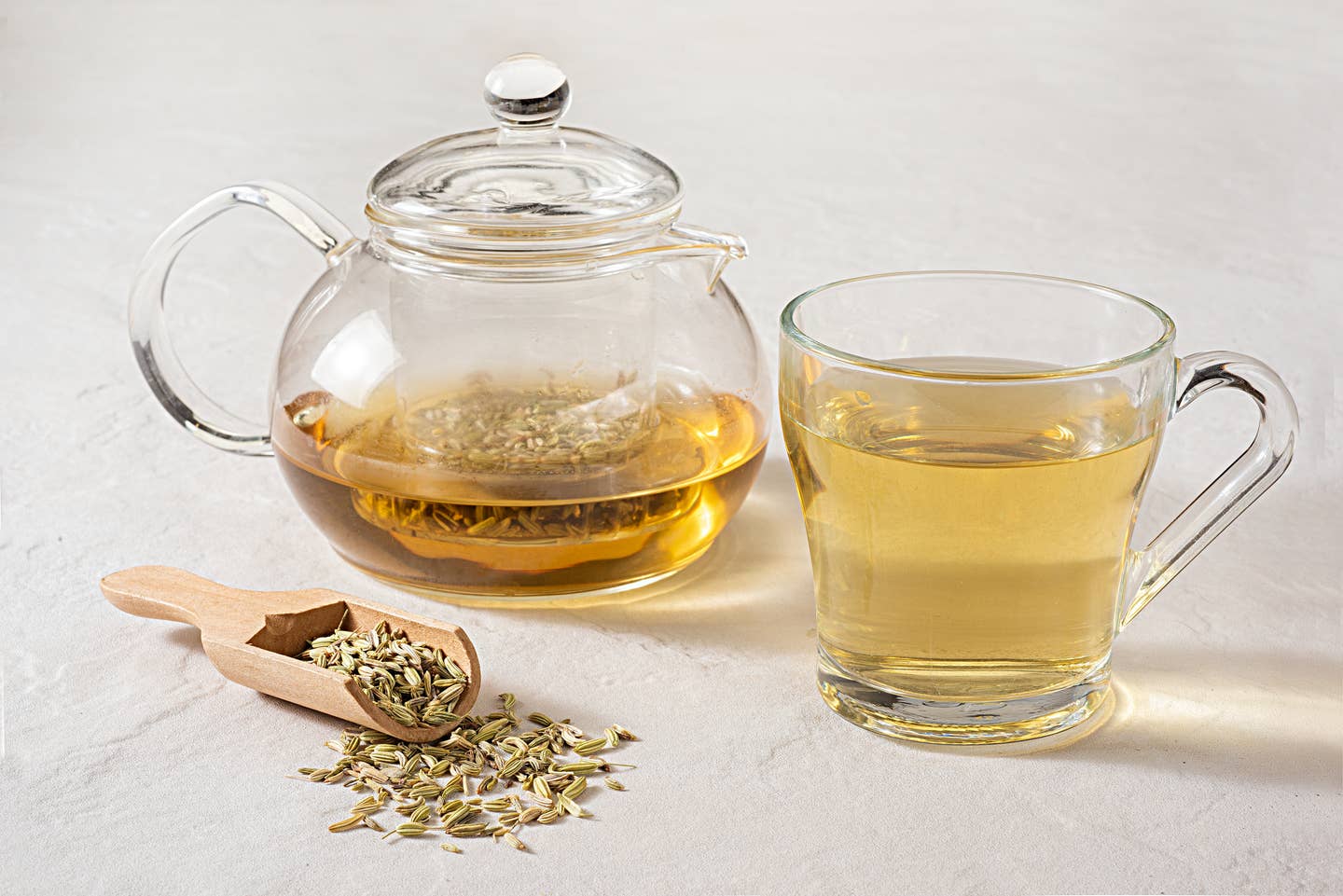
10 Foods to Boost Your Mood, According to Experts
Want to support your mental well-being? Boosting mood can be as easy as adding more plant-based foods to your plate. “Eating a plant-based diet can provide many benefits for mental health. One study showed that implementing plant-based nutrition intervention in a corporate setting improved reports of depression, anxiety and even increased productivity among employees,” says Nicole Stefanow, MS, RDN, garden-to-table nutrition educator from the greater New York City area.
Indeed, other experts agree with Stefanow’s sentiment, and there’s a whole body of growing evidence on the mental health benefits of going plant-based. “Plant-based diets are usually higher in vitamins, nutrients, omega-3 fatty acids, and antioxidants compared to a typical Western diet.
Eating nutrient-rich plant-based foods also supports a healthy microbiome, which is important for mental health as well. People who follow a vegan diet have been found to be less stressed compared to omnivores, according to a study,” comments Diana Gariglio-Clelland, consultant Registered Dietitian for Next Luxury.
How Does Food Affect Your Mood?
“Plant foods contain many antioxidants and phytochemicals, which greatly help repair damage and reduce inflammation in brain cells. Furthermore, plant foods can help restore balance to neurotransmitters,” explains Shannon Henry, RD, who works for EZCare Clinic which offers walk-in and online healthcare services for weight loss plans, nutrition/diet therapies, and treatments. “Many people with depression have high levels of an enzyme called monoamine oxidase (MAO). This enzyme breaks down serotonin, dopamine, and norepinephrine - neurotransmitters that help control emotions,” she continues.
As Henry explains, high levels of MAO lead to low levels of certain neurotransmitters, which can lead to stress. “Phytochemical quercetin, found only in plant foods, acts as an MAO inhibitor. Acting as a natural anti-depressant, quercetin can increase the levels of serotonin, dopamine, and norepinephrine in the brain,” she says, noting that foods with high levels of quercetin include grapes, apple, berries, kale, onions, and green tea. Below, a deep dive into some of these superfoods, such as blueberries, green tea, and leafy greens such as kale and spinach, along with other research-backed foods to boost your mood.
The Best Plant-Based Foods for Your Mental Health
1. Nuts and seeds for Omega-3s
Pass the walnuts, please. “Nuts and seeds such as walnuts, chia, flax, and hemp seeds are all great sources of omega-3 fatty acids based on plants. These fats are known to reduce symptoms of depression, and studies have shown that they can also help support those who suffer from anxiety,” explains Henry, pointing to this article.
2. Blueberries for antioxidants
We love adding this antioxidant-packed berry to our morning oatmeal or dairy-free yogurt, but you can also find us munching on ‘em plain throughout the day. “They are also a great source of vitamin C, a vitamin we need to protect and repair our cells. This is especially important when we are depressed,” says Henry.
“Studies have shown that having low levels of antioxidants are linked to anxiety. The good news is that blueberries also pack in large amounts of antioxidants, making them a great addition to plant-based diets aimed at reducing anxiety symptoms,” she elaborates.
3. Mushrooms to boost happiness
Bring on the ‘shrooms, friend. “Mushrooms can deliver a punch of mood-boosting vitamin D and magnesium. In fact, a recent study published this year analyzed the diets of the U.S. population according to the US National Health and Nutrition Examination Survey (NHANES, 2005-2016) and found that people who ate mushrooms had lower odds of developing depression,” shares Stefanow. Worth noting, as Stefanow adds, another recent study among women with fibromyalgia treated with reishi mushrooms, found a “distinct trend” of decreased depression and increased happiness. “They also found the subjects had increased overall satisfaction with life, now those are some pretty powerful mushrooms.”
4. Leafy Greens packed with magnesium
“Spinach is rich in magnesium, a nutrient that helps inhibit cortisol, a stress hormone that can increase the likelihood of anxiety and depression,” says Gariglio-Clelland. “Magnesium deficiency can result in depressed mood, irritability, and many other mood disorders.
Studies on spinach specifically found that spinach has anti-stress and anti-anxiety properties,” she elucidates.
Riffing on that, Stefanow adds that “the magnesium found in spinach and other leafy greens can help keep migraines and depression at bay and emerging research suggests it may help protect against anxiety as well.” If you’re not a huge fan of leafy greens, try slipping them into your go-to smoothie recipe since you’ll barely be able to detect their presence.
5. Green Tea for L-theanine
Skip the coffee and start your day with a cuppa green tea or matcha (a type of green tea made from young tea leaves). “Sipping on green tea might be a great way to introduce some calm into the day,” says Marisa Moore, MBA. RDN. LD, a culinary and integrative dietitian at MarisaMoore.com. “Research suggests that the amino-acid L-theanine present in green tea may help reduce stress-related symptoms such as anxiety and poor sleep quality.”
6. Tryptophan-rich oats
“Oats are a good vegan source of tryptophan, an amino acid. Tryptophan is converted into serotonin, a hormone that regulates our mood,” offers Gariglio-Clelland. “Eating tryptophan-rich foods can promote serotonin production, which in turn can boost mood and reduce symptoms of anxiety and depression,” she elaborates, pointing to this study.
Oats may also be good for your mental outlook for other qualities they possess. “Oats are an easy way to get B vitamins which help produce serotonin as well as magnesium, a mineral known to play a positive role in relaxation,” shares Moore. “Oats are also a good source of fiber, which may help with blood sugar control and therefore reduce potential irritability.” Overnight oatmeal with fresh fruit and a bit of agave nectar, here we come.
7. Asparagus for a great folate source
Ah, grilled or roasted asparagus with a drizzle of olive oil, and a sprinkle of salt and pepper. Is there any better veggie side dish? “This nutrient-dense veggie is a good source of folate, an essential nutrient for brain support and to improve your mood,” offers Henry. “Studies have shown this veggie has some anti-anxiety benefits, so consider making it a regular part of your diet.”
8. Pumpkin Seeds which can boost serotonin
We know we called out nuts and seeds before, but pumpkin seeds deserve some extra love. “Pumpkin seeds are high in tryptophan, an essential protein which helps our bodies produce serotonin, a neurotransmitter which is often referred to as the happiness hormone,” shares Stefanow. “Several studies suggest that tryptophan may provide a mood boost and decrease anxiety and may promote feelings of general wellbeing during depressive episodes.” Stefanow recommends putting pumpkin seeds in a kale salad for a superfoods-packed dish.
9. Bananas for Vitamin B6
Let’s hear it for this affordable, delightful fruit. “Vitamin B6, which is abundant in bananas, is an essential B vitamin for promoting happiness,” says Dr. Michael K. Newman, CEO & Plastic Surgeon. “They are rich in potassium, which helps feed your brain and contain a lot of magnesium, which has been proven to enhance sleep and decrease anxiety. They also include good carbohydrates and sugars, which assist in serotonin synthesis.”
10. Vitamin C-packed kiwis
“While the vibrant yellow color and sweet tropical flavor might brighten anyone’s day, one study found that eating two whole SunGold kiwifruit per day improved self-reported vitality in adults with low vitamin C levels,” says Moore, who’s enjoyed adding golden kiwis to her diet for years and is currently a partner with Zespri Kiwifruit. “SunGold kiwis are the perfect pick since just two SunGold kiwifruit provides 100 percent of your daily vitamin C needs”
You may even find that after eating one or two of these delightfully sweet fruits, your sweet tooth is fully satisfied and your hankering for an unhealthy dessert fades away. Okay, we’re still leaving room for this chocolate mocha chia pudding. Hey, chia seeds are good for our noggin, right?
For more great content about how to live your healthiest, check out the Health & Nutrition stories on The Beet.
More From The Beet






